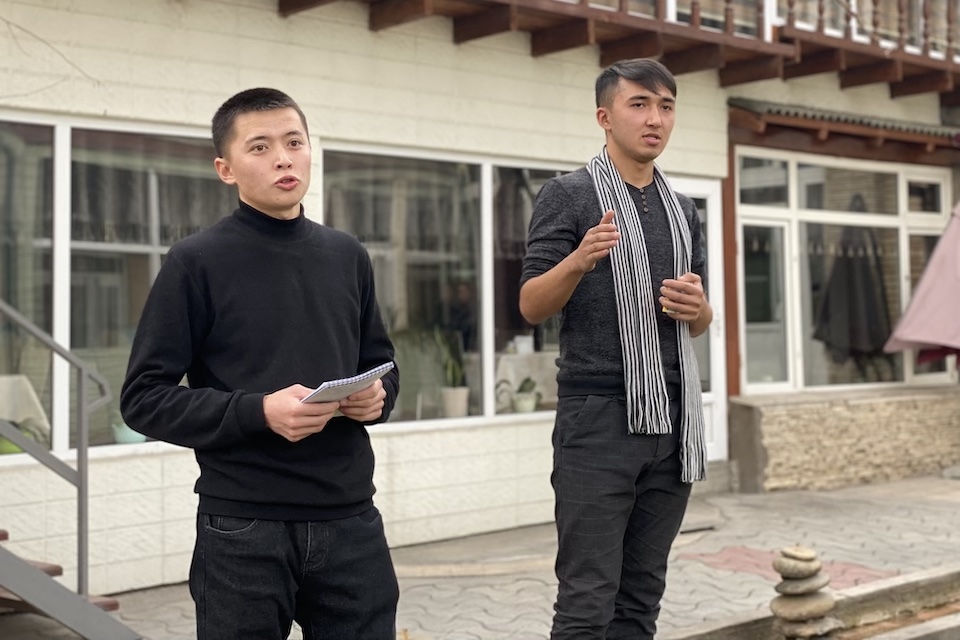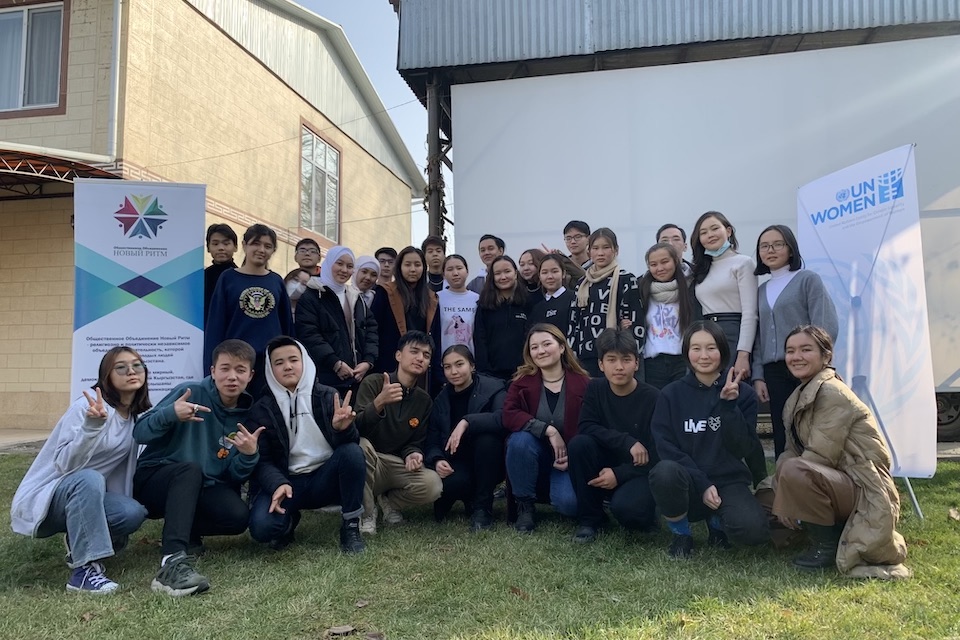Positive Deviance approach paves the way for equal opportunities for youth combating HIV/AIDS stigma in Kyrgyzstan
Date:

“I used to think you could contract HIV by kissing another person. Before, I didn’t understand how the virus is transmitted. I'm glad I was able to learn more about HIV infection,” shared Muhammed Zakhidjanov, a 24-year-old participant from Osh at a TEDx event organized by the local non-profit organization Life+ with the support of UN Women in Kyrgyzstan.
Widespread misconceptions about HIV transmission contribute heavily to the social exclusion of people living with HIV/AIDS (PLWHA). Gaining more knowledge inspired Zakhidjanov to become active himself and to share it at his university: “Thanks to the trainings, I decided to conduct an information session at my university and convey my knowledge to other students because I want that we live in a country free from stigma and discrimination.”
According to UNAIDS estimates, around 12,140 people were living with HIV/AIDS in Kyrgyzstan in 2022. Due to a hospital-acquired infection outbreak in 2005, there is a high proportion of young people living with HIV in the country. However, accurate figures are difficult to obtain because many people do not disclose their status due to persistent social stigma. Women and girls living with HIV/AIDS in the south of Kyrgyzstan often face multiple forms of discrimination due to not only their health status but also the more conservative, rural and religious customs in this part of the country. Social stigmas limit their rights to access medical care, social and legal services, education as well as freedom from discrimination and (self-)stigmatization.
Under the project “Promoting Innovations in Combating HIV and Eliminating Violence against Women in Kyrgyzstan”, UN Women Kyrgyzstan and six implementing partners used a peer-to-peer methodology as well as the “Positive Deviance” approach to reduce social stigma and self-stigmatization regarding HIV/AIDS among youth. The approach aims to solve complex problems by learning from people who are succeeding despite myriad challenges – so-called positive deviants. By being presented with positive examples of PLWHA and by gaining more knowledge about the topic, young people learn to debunk transmission myths and false assumptions as well as how to combat stigma and educate people about HIV/AIDS.
Given how many young people are affected and that half of the population in Kyrgyzstan is under the age of 24, youth are important drivers of change. Therefore, one focus of this project was to conduct a series of inclusive, multilingual trainings for young people from different ethnicities, abilities, religions and sexual orientations in the Osh province. The various events introduced participants to the Positive Deviance approach and inspired them to take on responsibility for the future by giving people equal opportunities to be themselves in a world where there is no need to pretend or hide behind masks, stereotypes and labels.

Within the project partnership with the local youth organization New Rhythm, an event dubbed the “Academy of Gender Norms” was implemented for young people. The academy has become a place not only for learning, but also for networking and opportunities, providing inclusiveness for everyone. It offers the space to connect with like-minded people and collectively build a safer society for everyone.
The academy offered the chance to debate current problems, such as the violence women and girls living with HIV/AIDS face every day. Participants actively discussed how violence can and should be prevented. Youth learned the importance of knowing their rights and contacting law enforcement agencies or guardianship authorities if they experience or witness violence.
“This training has taught me about my rights and how to advocate for them in public institutions,” said Alim Alimov, an 18-year-old participant from Osh.
Ziedillo Atakuziev, also 18, added: “If every person knows their rights and fights for the rights of those around them, our country will definitely be able to achieve justice, and people will be able to support their loved ones and avoid becoming victims.”